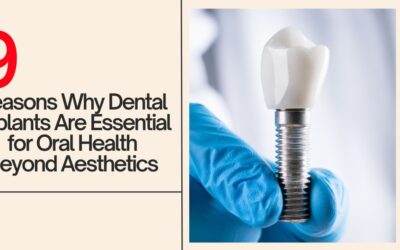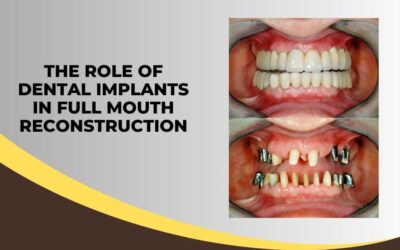Edentulism is a medical term that defines tooth loss. Edentulism can be divided into partial and Complete Edentulism. Partial Edentulism is the loss of one or more teeth, while Complete Edentulism is used to denote when all the teeth are lost. Most people are not aware that edentulism not only affects the chewing, biting and eating aspect of our lives but it also affects our speech and can give sagging facial features which make us look older. What do you do if you have Partial Edentulism and the teeth that are present too are not maintained properly?
First – What are the causes of Edentulism?
Poor oral hygiene is the primary reason that can lead to Partial Edentulism and then if left unchecked can lead to Complete or Total Edentulism. In adults, dental cavities and periodontal diseases are the main causes of tooth loss. Periodontal disease can damage the bone and gum tissue that support the teeth. As the disease progresses, the supporting gums and bones are further damaged and ultimately cause tooth loss.
Some of the other factors that contribute to edentulism are smoking, bruxism, oral trauma, diabetes, hypertension, heart diseases, some genetic factors, etc.
Certain risk factors like smoking can be avoided to prevent edentulism. For certain other risk factors, care can be taken to either control or prevent them so that an eventual edentulism can be avoided. Overall good oral care is the first and foremost step towards preventing edentulism.
When do you need all teeth to be removed and replaced?
If you have partial edentulism and the remaining teeth are also not salvageable, then your dentist might recommend you to remove or extract the remaining teeth and go in for complete replacement. This is also termed as complete oral rehabilitation.
What are the available solutions if all or a few teeth are removed?
The treatment solutions available are removable dentures, implant-supported overdenture (partially fixed), and completely fixed solutions that include All-on-4 Dental Implants’ and ‘All-on-6 Dental Implants.
It has to be said that dental implant therapy is far more superior to treatment options like removable dentures or bridges. Any type of Dental Implant therapy is the gold standard treatment solution for teeth loss. The two types of dental implant therapy for full mouth rehabilitations are ‘All-on-4 Dental Implants’ and ‘All-on-6 Dental Implants’.
“All-on-4” and “All-on-6 Dental Implants”
The “All-on-4” or “All-on-6” dental implant therapy is a unique treatment solution that allows for a full mouth tooth replacement with just 4 or 6 dental implants on the top and bottom jaw or either. Which implant to choose, either “All-on-4” or “All-on-6” would be decided and recommended by the dentist. Once the implants are placed, a permanent overdenture is fixed onto the implants which look and function like natural teeth. Since these dentures are attached to the implants, you can talk, eat and sleep without worrying about implants slipping out while doing so.
So people who have complete tooth loss or who need a full set of teeth extracted and replaced can get their entire set of teeth replaced with ‘All-on-4 Dental Implants’ or ‘All-on-6 Dental Implants’.




